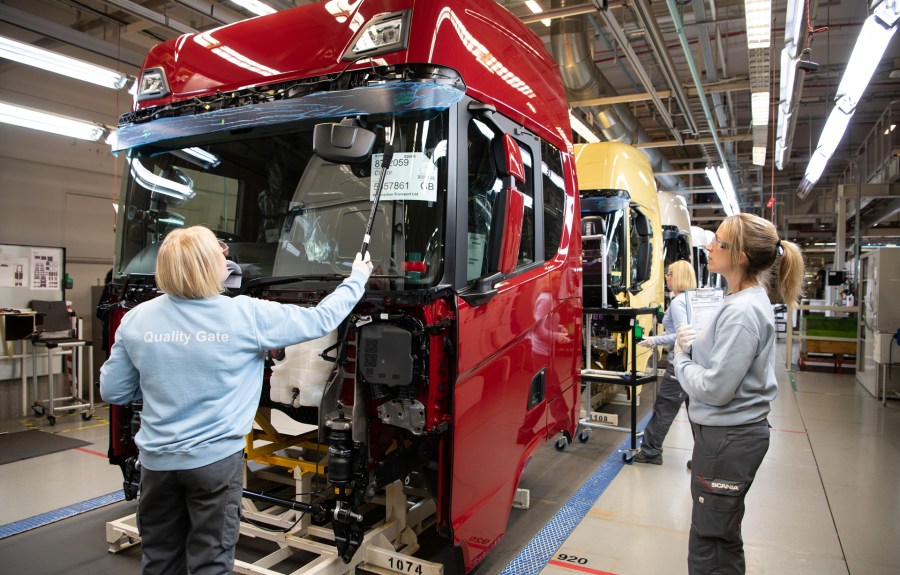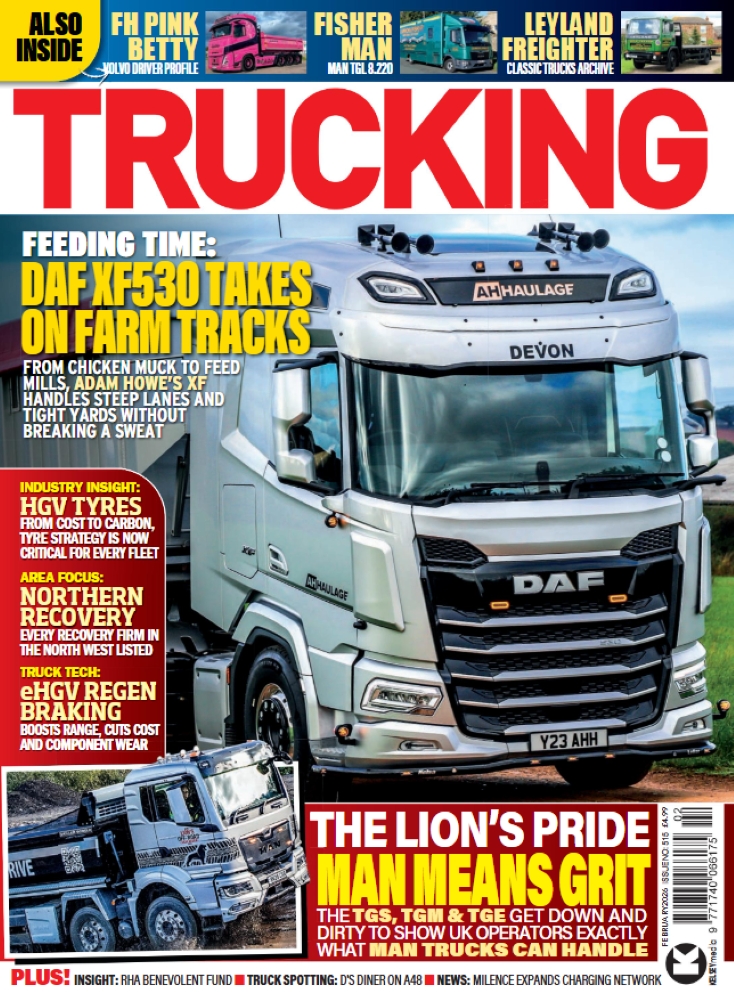Great achievements in circular production have been made Scania’s cab factory in Oskarshamn, Sweden.
For example, the production process has been fossil-fuel-free since 2020.
In addition, more material is recycled and the energy consumption has decreased dramatically.
The employees at the site are equipped with ‘green glasses’.
Meanwhile they are also focused on making sustainability improvements to help reach circular production goals.
The truck manufacturer has committed to cutting supply chain CO2 emissions by at least 50% between 2015 and 2025.
As a result, sustainability manager, Pernilla Zackrisson, has a big job on her hands.
However, she has a a number of initiatives that will make a difference.
For example, she has introduced the ‘Green Accelerator’ method to visualise everything that goes in and out of different processes.
“The mindset is simple,” she said.
“It should feel natural to work daily with green improvements.
“Nobody can do everything, but everybody can do something,” she reasons.
Scania’s cab factory in Oskarshamn supplies the customer-specific cabs to the whole of Europe.
Therefore, everything from steel coils to the full range of premium cabs is made onsite.
The delivery schedule sees several trips to nearby final assembly lines each day.
Furthermore, the employees at Scania Oskarshamn are proud to be in the industry forefront in cab production.
In addition, they take their responsibilities regarding energy and waste reduction very seriously.
“The most important aspects of our sustainability work have been the initiatives on all levels,” said Zackrisson.
The approach taken, she reasoned helps achieve circular production success overall.
“The greatest energy savings have been made in the press shop and in the painting process,” Zackrisson explained.
“With a powerful heating pump, we can recycle excess heat from the presses.
In additon, the Scania team are also recycling air in the paint shop.






